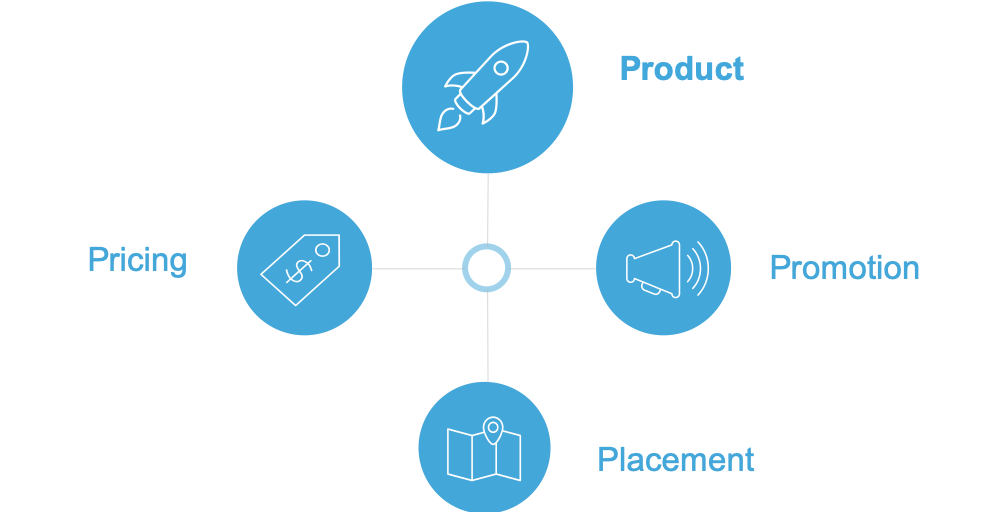What are the 4P’s of Marketing?
The successful marketing mix of the 4 P’s can be summed up as having the right product, in the right place, at the right price with the right promotion. While this is a very simple explanation of a successful marketing strategy it is a bit more complex than it seems at first glance. All four elements need just the right balance for a product to be successful. Let’s take a look at each of the P’s in detail and how each one relates to the role of a Product Manager.

Product
This is the most important of The Four P’s because without a Product you have nothing to price, place or promote. The product can be a tangible good, an online product or a service. For the product to be successful, It’s imperative that a Product Manager has a thorough understanding of their product, what problems their product is solving and who their end-user/customer will be. In addition, the Product Manager needs to study their product in-depth to understand what makes their product unique from the other products that are on the market.
Place
Product placement has always been important, only the product placement has shifted from being all about a physical location to the placement of your product online. It’s the difference between thousands of people seeing a product in-person to millions of people all around the world seeing it online. The placement of your product is the difference between the success or the failure of the product. For this reason, it’s crucial to do placement testing with various iterations until you reach maximum exposure.
Price
Price refers to the amount an end-user will pay for your product or service. If your product is priced too high, or too low it will not sell. Additionally, your pricing affects the perceived value of your product. If your product is priced lower than the competition, you are implementing a cost leadership strategy. If your product is priced high then you are working with a differentiation strategy (see Generic Competitive Strategy), and if your pricing falls in the middle, you’ll likely get lost amongst the masses of products that are doing average price points. It’s better to price either really low with a strategy or really high with a strategy.
Promotion
Promotion is very similar to another of The Four P’s and that is place. The major difference is that Place is very passive and all about where a product is located either in the physical world or online. Promotion is all about actively getting the end users attention. Promotion usually takes the form of advertising, everything from banners on websites to billboards on the side of the road. Promotion is the communication aspect of a Product.
Origins of the Four P’s
Edmund Jerome McCarthy, a Professor of Marketing at Notre Dame developed the concept of The Four P’s with the publication of his book in 1960, “Basic Market: A Management Approach.” Prior to McCarthy’s Four P’s approach, the marketing industry was focused on a functional school of thought. McCarthy’s approach with The Four P’s stems from sociology and psychology as opposed to the previously used function method which focuses on economics. His approach focused more on the marketing manager as well as consumer behavior. While Product Management is often synonymous with the tech industry, it’s rooted in the marketing industry. Hence the application of The Four P’s into Product Management.
Implementing the Four P’s
The core role of a Product Manager is to ensure the success of their product. To do this a Product Manager will need to know how to build a product to service the market that their product will be entering. A Product Manager is responsible for the Product, while only having influence on place, price and promotion. For example, Marketing is responsible for promotion. While a Product Manager may only have an influence on the other three P’s they need to have a fundamental understanding of The Four P’s for a Product to be successful.


